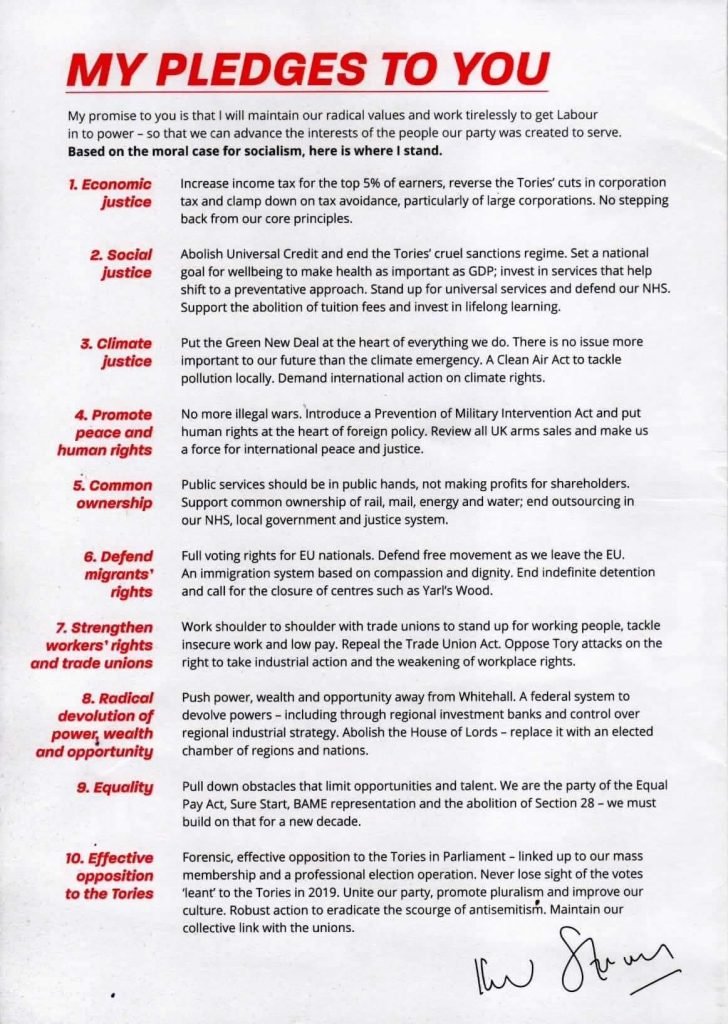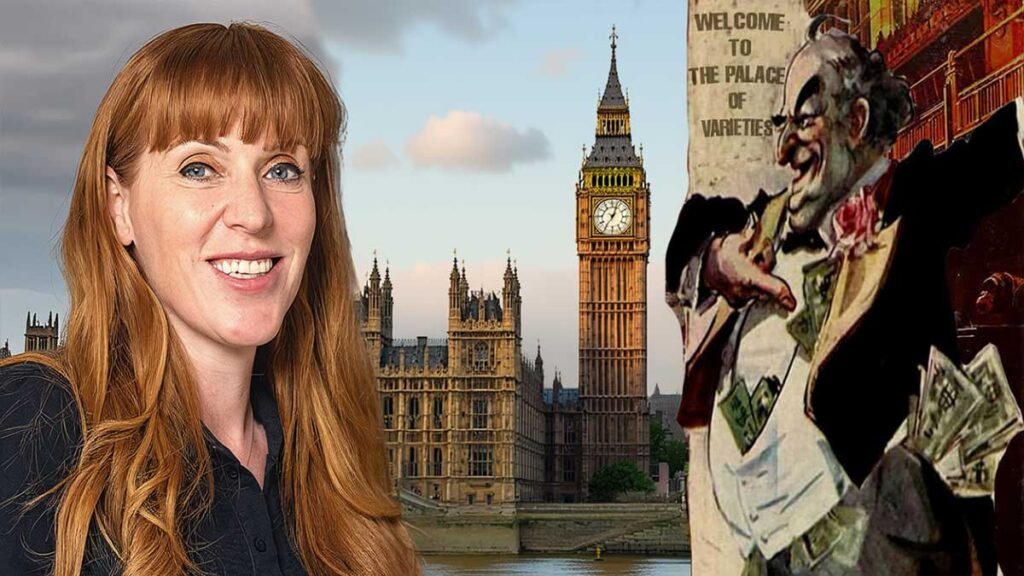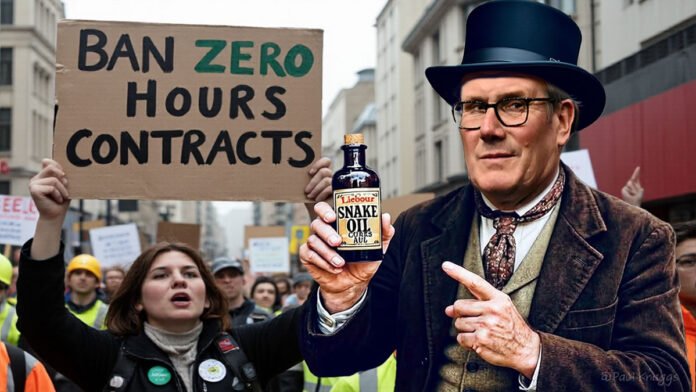When Labour Abandons Labour
Unions warn government not to water down workers’ rights bill
The question is, would anyone be genuinely surprised if they did? That is the question haunting trade union halls across Britain as Keir Starmer’s government eyes the Employment Rights Bill with the nervous glance of a politician calculating electoral arithmetic rather than moral imperatives.
The departure of Angela Rayner, has left a vacuum at the heart of government that business lobbies are already rushing to fill. Within hours of her resignation, the Federation of Small Businesses was briefing journalists about “opportunities to fix the issues” with legislation designed to protect Britain’s most vulnerable workers. The vultures, it seems, were already circling before Rayner had even cleared her desk.
This is the moment of truth for Starmer’s Labour: will they stand with the millions who voted for change, or will they adjust corporate interests? The early signs are not encouraging.
Christina McAnea, general secretary of Unison and normally a loyal supporter of the government, speaks with the weary resignation of someone who has seen this movie before. “It doesn’t send out a very good message,” she observes with characteristic understatement, “that the people who were absolutely committed to driving through the employment rights bill are no longer doing those jobs.” When even the most moderate union leaders begin expressing public doubt about Labour’s commitment to workers’ rights, we have crossed into dangerous territory indeed.
The Employment Rights Bill represents more than legislative reform, it embodies the fundamental question of whose interests a Labour government serves. The proposed protections against unfair dismissal, the ban on exploitative zero-hours contracts, the guarantee of secure working hours, these are not radical socialist fantasies but basic dignities that any civilised society should afford its workers. Yet already we hear whispers of “slow walking,” of ministers being “tempted to drag their feet” as an “olive branch to business.”
How perfectly this captures the modern Labour mindset: workers’ rights as political capital to be traded away when convenient, rather than moral principles to be defended regardless of cost. The party that once proudly proclaimed itself the voice of organised labour now treats union concerns as just another interest group to be managed rather than represented.

The cruel irony is not lost on those paying attention. Angela Rayner’s downfall came through property dealings that highlighted her distance from the working-class voters she claimed to represent. Yet her departure removes the one senior minister genuinely committed to delivering tangible improvements for those same voters. In losing Rayner, Labour has not just lost a political ally, it has lost its connection to its own supposed purpose.
What the proposed legislation actually offers: protection for workers currently at the mercy of employers who can dismiss them at will, security for families trapped in the gig economy’s precarious existence, dignity for those forced to accept whatever hours suit their bosses’ convenience. These are not abstract policy positions but real improvements to real lives, improvements that some Labour MPs now suggest should be sacrificed on the altar of business confidence.
The warnings from union leaders carry particular weight because they come not from the usual suspects on the left but from pragmatic moderates who understand political reality. When Paul Novak of the TUC feels compelled to urge the government to “stay on course,” when USDAW raises concerns about House of Lords amendments designed to gut the bill’s effectiveness, we are witnessing something more profound than routine political positioning. We are seeing the organised working class realise that even a Labour government cannot be trusted to defend their interests without constant pressure.
The Federation of Small Businesses’ response to Rayner’s resignation reveals the game being played. Their director Craig Beaumont celebrates her departure as a chance to “fix the issues” with legislation his members oppose. When he boasts that 92% of FSB members are “worried” about workers gaining basic rights, he inadvertently exposes the moral poverty of the opposition they face. What kind of business model depends on workers remaining insecure and exploitable?

Yet this is precisely the constituency that Starmer’s Labour appears increasingly eager to court. The triangulation continues: soften workers’ protections to reassure business, promise economic growth while maintaining the very labour market conditions that suppress wages and productivity. It is neoliberalism, the same failed ideology that created our current crisis of inequality and insecurity.
The broader pattern is unmistakable. From Rayner’s property dealings to Cooper’s authoritarian immigration policies, from Reeves’ orthodox Treasury thinking to the creation of McFadden’s “growth department,” this government consistently prioritises the comfort of capital over the needs of workers. The Employment Rights Bill was supposed to be different, concrete proof that Labour still remembered whose interests it was elected to serve.
If that bill is watered down or delayed, if business pressure succeeds in neutering worker protections, then the transformation of Labour will be complete. The party will have formally abandoned any pretence of representing working people in favour of managing their exploitation more efficiently than the Conservatives.
The union leaders’ warnings should be heeded not just as political advice but as moral guidance. McAnea’s promise that unions will “furiously campaign” against any retreat represents more than industrial strategy, it represents the last line of defence for the idea that Labour governments should actually champion labour.
The path forward is depressingly predictable. This is not merely about employment law but about the fundamental character of British society and Starmer’s Labour has already shown us exactly where its loyalties lie. We will remain a country where workers exist at the mercy of their employers because this government lacks the courage to challenge the structures that created that reality.
Starmer’s track record makes the outcome inevitable. They will water down the Employment Rights Bill, finding excuses in economic necessity and business confidence. The transformation from workers’ party to administrators of managed decline is already complete. This is simply the formal acknowledgment.
The unions can watch all they like. The workers can wait until kingdom come. History will record not just another broken Labour promise, but the final proof that progressive politics in Britain died the moment Starmer took control of the party. A betting man would put his money on betrayal and based on everything this government has done to date, he would win every time. After all, they have not kept a single significant promise yet. Why would they start now?
Support Independent Journalism Today
Our unwavering dedication is to provide you with unbiased news, diverse perspectives, and insightful opinions. We're on a mission to ensure that those in positions of power are held accountable for their actions, but we can't do it alone. Labour Heartlands is primarily funded by me, Paul Knaggs, and by the generous contributions of readers like you. Your donations keep us going and help us uphold the principles of independent journalism. Join us in our quest for truth, transparency, and accountability – donate today and be a part of our mission!
Like everyone else, we're facing challenges, and we need your help to stay online and continue providing crucial journalism. Every contribution, no matter how small, goes a long way in helping us thrive. By becoming one of our donors, you become a vital part of our mission to uncover the truth and uphold the values of democracy.
While we maintain our independence from political affiliations, we stand united against corruption, injustice, and the erosion of free speech, truth, and democracy. We believe in the power of accurate information in a democracy, and we consider facts non-negotiable.
Your support, no matter the amount, can make a significant impact. Together, we can make a difference and continue our journey toward a more informed and just society.
Thank you for supporting Labour Heartlands












